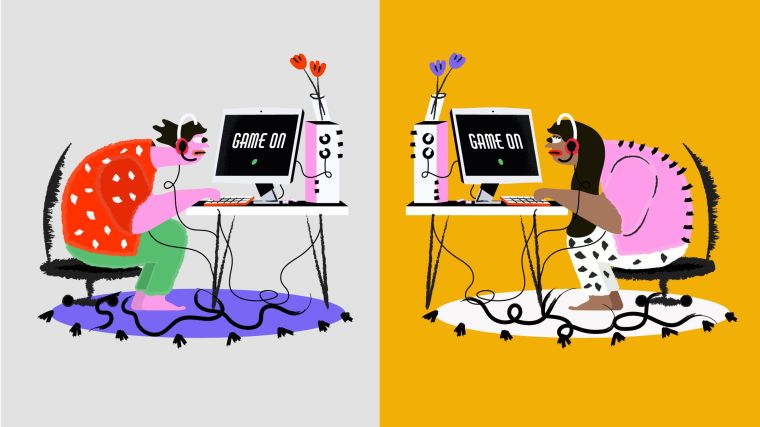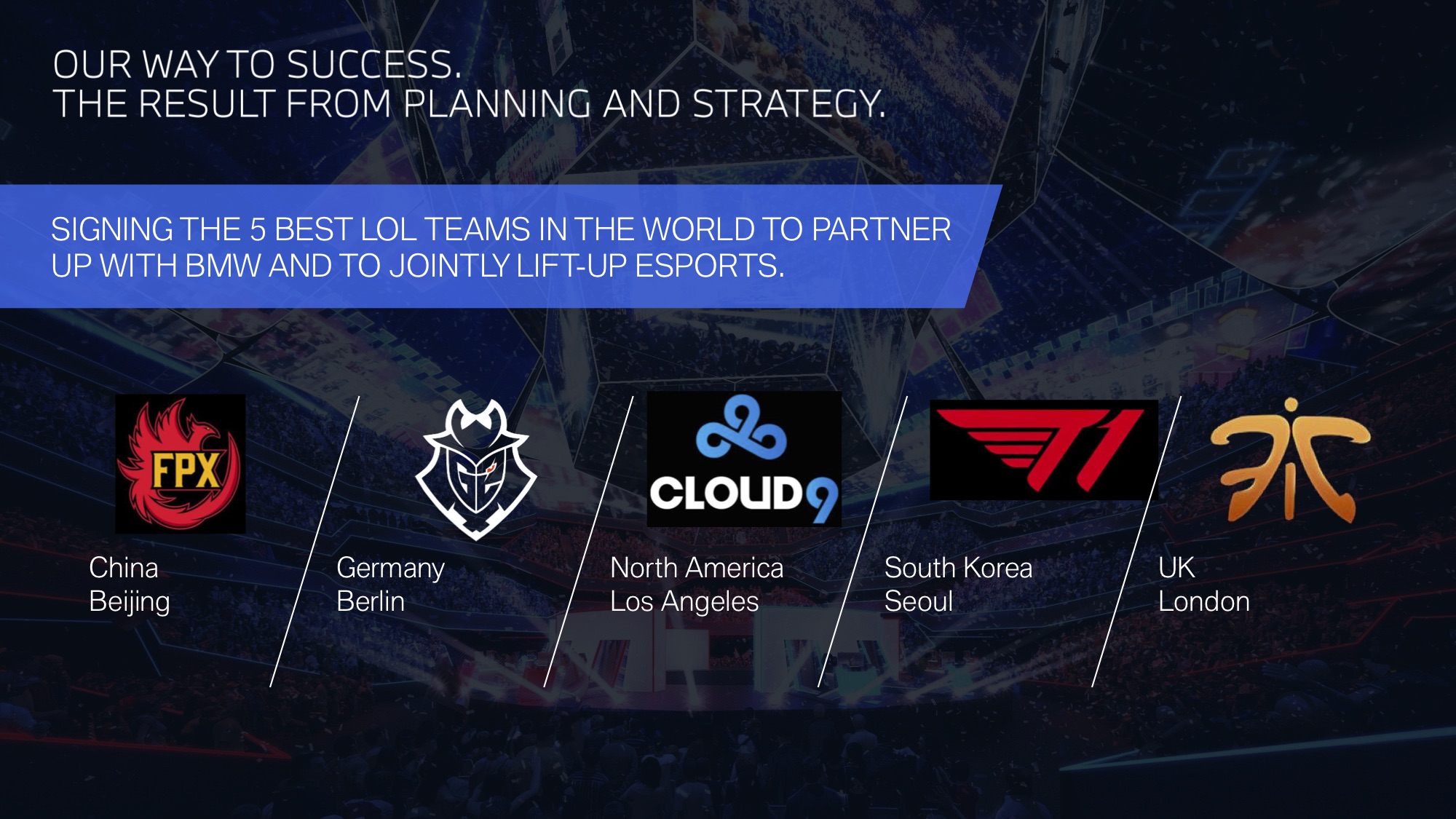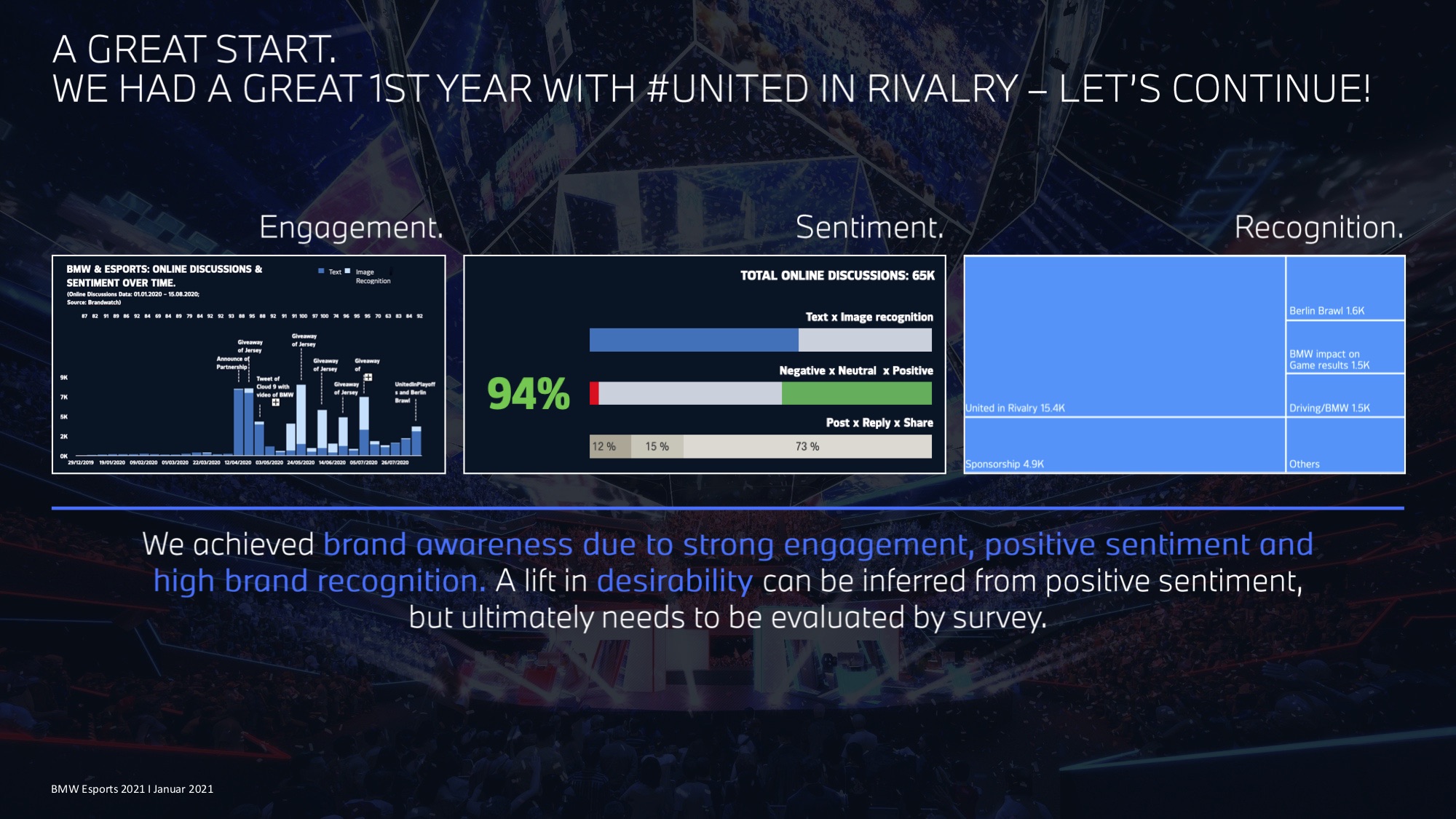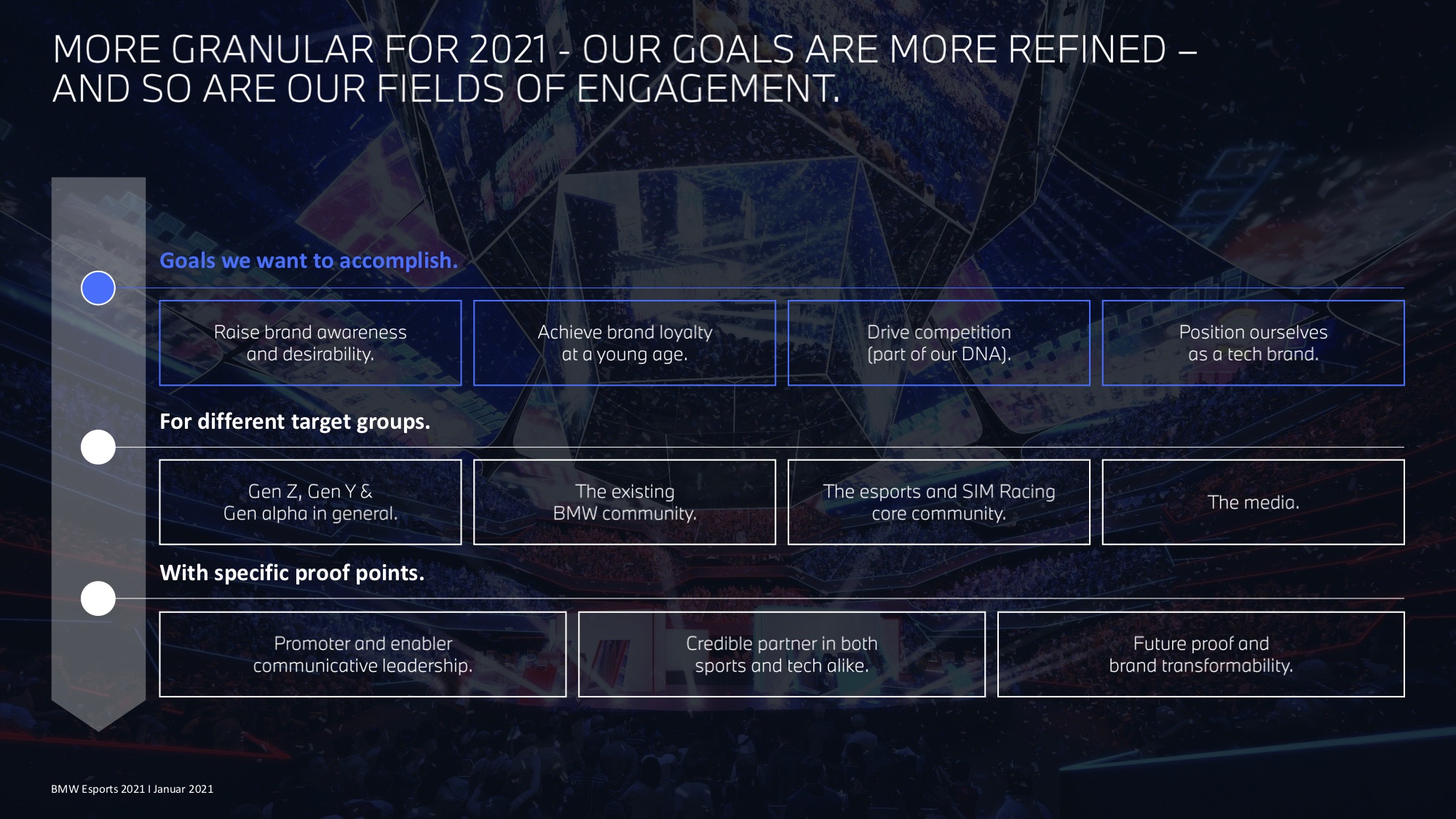
In BMW’s ever-continuing journey to reach consumers in the spaces they’re playing (literally), the automobile company has found success in esports.
All that the brand had to do was find “the perfect fit between our brand strategy and the esports community,” said Pia Schoerner, head of esports at BMW Group. Schoerner further explained the company’s campaign to reach esports consumers at Digiday’s Gaming Advertising Forum on April 8.
BMW Group’s Mission: To reach consumers through esports
The brand wanted to make a “strong, authentic” play to consumers in the esports community, so the company took time to research and “understand the scene.”
“We needed to identify the sweet spot, we needed to choose the right teams and the right games,” Schoerner said.
That led BMW to create, in mid-April last year, its “United in Rivalry” campaign in which it backed five prominent esports teams: Cloud 9 (U.S.), Fnatic (U.K.), Funplus Phoenix (China), G2 Esports (Germany) and T1 (South Korea) competing in League of Legends.

“We took that campaign to push the rivalry to speak on eye level with the teams and the community,” Schoerner said. The sponsorship extended to the gaming environment: the company partnered with each team to create custom game vehicles with unique logos and designs that embodied their teams’ spirits.
The initiative into esports is now seen by the company as an additive digital tool to communicate with consumers, especially digital natives who might not otherwise already be aware of the BMW brand.
The campaign created a way for BMW to push the rivalry “in their language.” “We don’t need to talk BMW language, but BMW esports language,” Schoerner said.
As Schoerner put it: “it wasn’t that easy to convince the BMW board that esports was the right story to tell.” She added that it was difficult to articulate the exact value of investing in the channels.
But, after discussing the opportunities associated with the space and highlighting the mass audience there and its multidimensional, important community, “in the end, we took the right step.”
“Now they understand, it’s not just gaming, it’s more: it’s strategy and the people really need to fit to be part of that story,” Schoerner said.
In addition, the pandemic forced the company to become more digitally-friendly — and esports became a bigger part of the conversation.
After the campaign resulted in natural, organic chatter online, the BMW team wanted to maintain the momentum and take it to the “next level,” Schoerner said.
But the brand took a step back and reexamined how it would define success and move the goal post. Specifically, the company established that it wants to accomplish four specific goals: raise brand awareness, achieve brand loyalty at a young age, drive competition and position the company as a tech brand.

Achieving those goals varied among different target groups, including Gen Alpha (those born between 2010 and 2024) and those consumers that were already a part of the BMW fan base.
“Our idea is to be a communicative leader, an incredible partner and we really want to future-proof and transform our brand and rejuvenate our brand,” Schoerner added.
With that also comes with knowing your limits. Would BMW ever outright buy one of these esports teams? For now, no. “We are not a gaming company. I would stick to tangible benefits: technical know-hows, technical input, this is something that fits our brand better,” she said.
BMW decided that it wanted to be perceived as a “rebel” brand moving forward and communicate in a “non-traditional way” through esports.

“We want to have more of a position in the gaming segment,” Schoerner said. The brand most recently launched a new campaign — The Heroes of Rivalry — in which it partnered with Japanese artist Acky Bright to create a manga showcasing popular players from the United in Rivalry teams.
The foray into esports also returned the brand to a well-worn industry notion: “content is key.” And to play authentically, and genuinely, in a space like esports, the storytelling has to be up to par.
“BMW esports really helps us catch up with the future,” Schoerner said.


